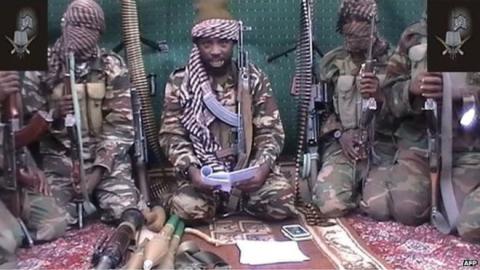
It is premature to draw conclusions about what Shekau is actually saying in the new video and what it means. Questions remain about when the video was made and where, and why it has now been released. It is also premature to draw conclusions about what Shekau’s death might mean. Shekau’s authority over Boko Haram has always been unclear, and there is little outside understanding about how Boko Haram is led, though the movement appears highly decentralized and has been subject to internal splits in the past.
Abubakar Shekau has been the face of Boko Haram, the radical Islamist terrorist movement associated with the killing of more than twenty thousand in northern Nigeria since 2009. The group is responsible for about two hundred deaths thus far in 2016, and more than two million internally displaced persons. In the past Shekau regularly issued videos, many of which featured grisly scenes of beheadings and other violence against Nigerian security service and other official personnel. Some of the videos were long. Shekau usually spoke in Hausa and Arabic, and occasionally in English. Then he went silent and his videos were replaced by no one. His last video appeared in March 2015 when he pledged allegiance to the so-called Islamic State. In August 2015 he (or someone) issued a brief audio recording, though it was unclear where or when it was made. However, on March 24, 2016 he allegedly issued a video, seven minutes in length, also in Hausa and Arabic.

Senior Nigerian military officials are quoted as saying the newly-released video ‘signals the group’s demise’ and some say that Shekau is calling on his followers to surrender. However, a BBC reporter, Steph Hegarty, notes that the video is very poor in quality. After studying the video, she tweets that Shekau is not urging surrender but rather the purpose of the video is to confirm to his supporters that he is alive. She also concludes that, “He’s weak and struggling to speak.”
It is premature to draw conclusions about what Shekau is actually saying in the new video and what it means. Questions remain about when the video was made and where, and why it has now been released. It is also premature to draw conclusions about what Shekau’s death might mean. Shekau’s authority over Boko Haram has always been unclear, and there is little outside understanding about how Boko Haram is led, though the movement appears highly decentralized and has been subject to internal splits in the past.
Boko Haram has continued to use suicide bombers successfully in 2016, and in a February attack on Dalori, only six miles from the Borno state capital, Maiduguri, Boko Haram used motorcycles and its fighters wore uniforms, as it did in 2014 when it was occupying territory. Nevertheless, the total number of deaths for which it is responsible is significantly less than at this time last year.
A first step will be to determine what the video actually says, and then what the words might mean. Until then skepticism is in order.
John Campbell is the former Ambassador to Nigeria and is the Ralph Bunche Senior Fellow for Africa Policy Studies at the Council on Foreign Relations. The original version of this piece can be read here.